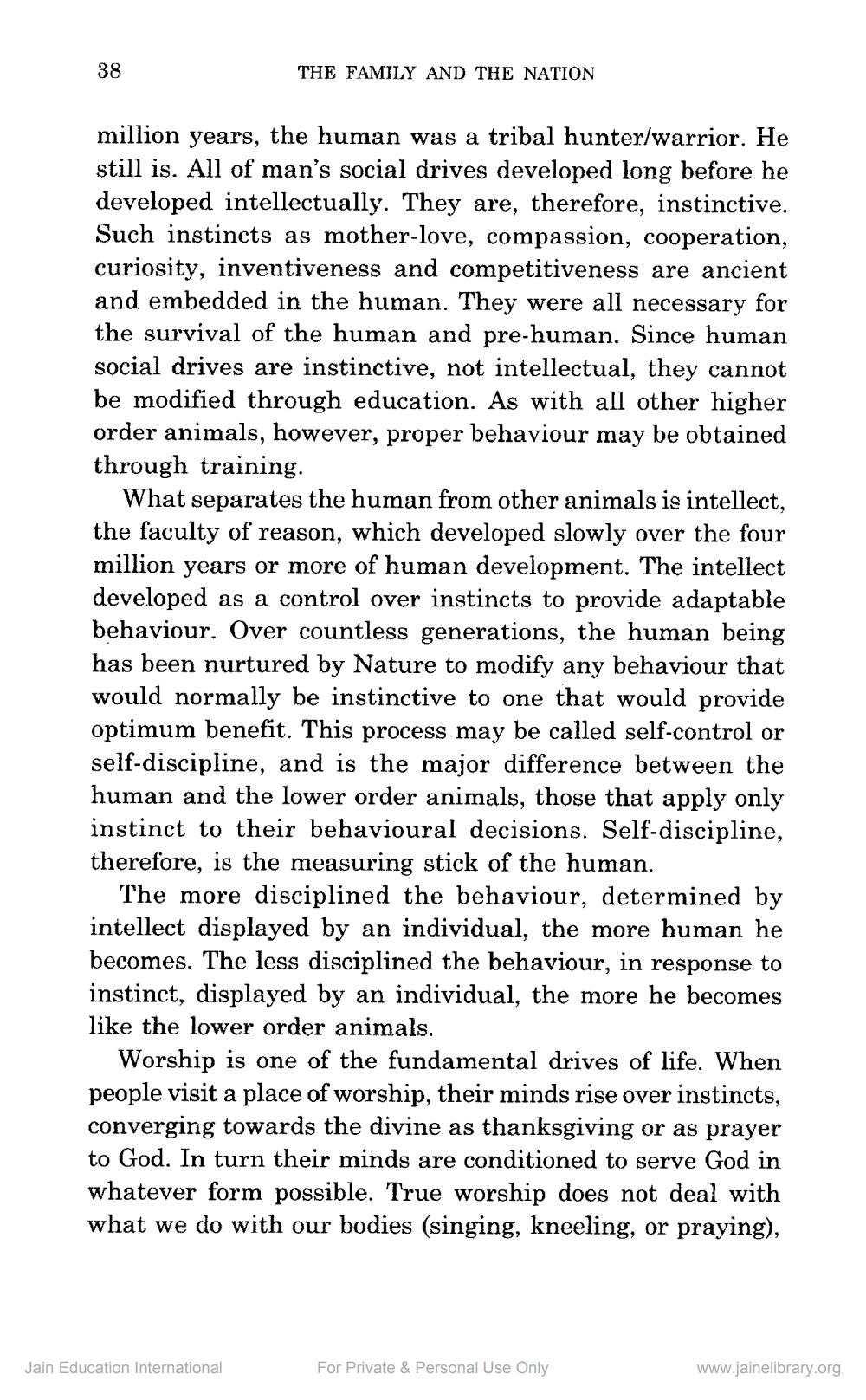________________
38
THE FAMILY AND THE NATION
million years, the human was a tribal hunter/warrior. He still is. All of man's social drives developed long before he developed intellectually. They are, therefore, instinctive. Such instincts as mother-love, compassion, cooperation, curiosity, inventiveness and competitiveness are ancient and embedded in the human. They were all necessary for the survival of the human and pre-human. Since human social drives are instinctive, not intellectual, they cannot be modified through education. As with all other higher order animals, however, proper behaviour may be obtained through training.
What separates the human from other animals is intellect, the faculty of reason, which developed slowly over the four million years or more of human development. The intellect developed as a control over instincts to provide adaptable behaviour. Over countless generations, the human being has been nurtured by Nature to modify any behaviour that would normally be instinctive to one that would provide optimum benefit. This process may be called self-control or self-discipline, and is the major difference between the human and the lower order animals, those that apply only instinct to their behavioural decisions. Self-discipline, therefore, is the measuring stick of the human.
The more disciplined the behaviour, determined by intellect displayed by an individual, the more human he becomes. The less disciplined the behaviour, in response to instinct, displayed by an individual, the more he becomes like the lower order animals.
Worship is one of the fundamental drives of life. When people visit a place of worship, their minds rise over instincts, converging towards the divine as thanksgiving or as prayer to God. In turn their minds are conditioned to serve God in whatever form possible. True worship does not deal with what we do with our bodies (singing, kneeling, or praying),
Jain Education International
For Private & Personal Use Only
www.jainelibrary.org




